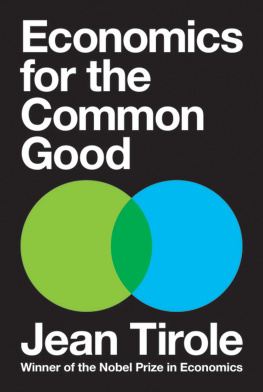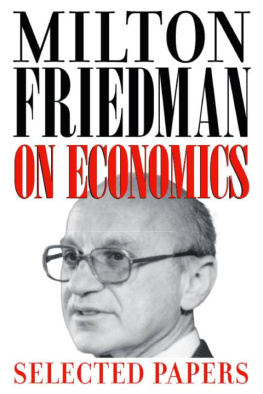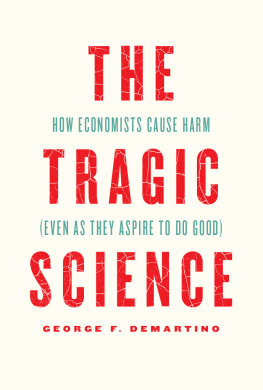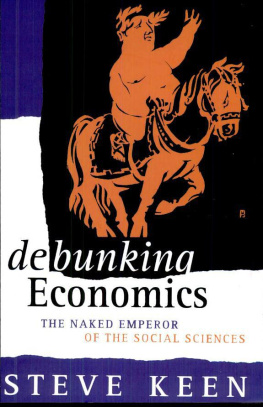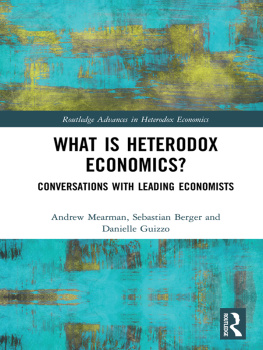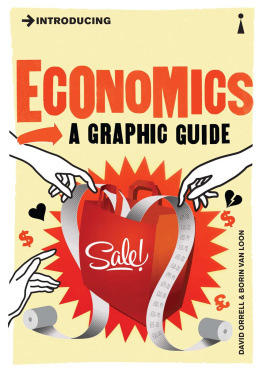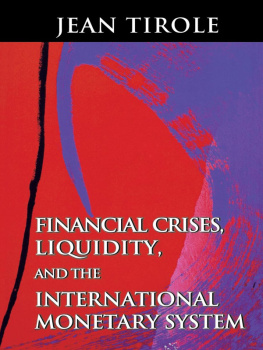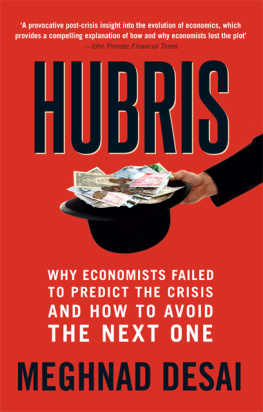
Economics for the Common Good
ECONOMICS FOR THE COMMON GOOD
JEAN TIROLE
TRANSLATED BY STEVEN RENDALL
PRINCETON UNIVERSITY PRESS
PRINCETON AND OXFORD
English language copyright 2017 by Princeton University Press
Published by Princeton University Press,
41 William Street, Princeton, New Jersey 08540
In the United Kingdom: Princeton University Press,
6 Oxford Street, Woodstock, Oxfordshire OX20 1TR
Originally published in 2016 under the title conomie du bien commun Presses Universitaires de France
press.princeton.edu
Jacket design by Chris Ferrante
All Rights Reserved
ISBN 978-0-691-17516-4
Library of Congress Control Number: 2017945101
British Library Cataloging-in-Publication Data is available
This book has been composed in Adobe Garamond Pro by T&T Productions Ltd, London
Printed on acid-free paper
Printed in the United States of America
10 9 8 7 6 5 4 3 2 1
CONTENTS
PART I
ECONOMICS AND SOCIETY |
PART II
THE ECONOMISTS PROFESSION |
PART III
AN INSTITUTIONAL FRAMEWORK FOR THE ECONOMY |
PART IV
THE GREAT MACROECONOMIC CHALLENGES |
PART V
THE INDUSTRIAL CHALLENGE |
ACKNOWLEDGMENTS
I am very grateful to the entire Princeton University Press team for its superb work during the process leading to the publication of this book. Bilingual Sarah Caro, its publisher for Social Sciences for Europe, supervised the translation process with talent, good humor, and patience. Peter Dougherty, its director, has been enthusiastic about the book since day 1 and has brought precious advice; I was delighted to work with him once again. The translation team was composed of Steven Rendall, who had the hard task of translating a long book in a short time, and of Professor Diane Coyle and Tim Phillips, who did a great job at making sure that the economics was sound and adapted to an international audience. The reader will, I think, take notice of the resulting high quality of the translation. Finally, let me thank Jon Wainwright from T&T Productions Ltd and Julie Shawvan for their careful work typesetting and indexing the book.
The French version had benefited from helpful comments from Philippe Aghion, Roland Bnabou, Olivier Blanchard, Christophe Bisire, Paul Champsaur, Frdric Cherbonnier, Mathias Dewatripont, Augustin Landier, Alain Quinet, Patrick Rey, Paul Seabright, Nathalie Tirole, Philippe Trainar, and tienne Wasmer, who of course cannot be held responsible for any errors and omissions.
Like any book, Economics for the Common Good heavily borrows from the authors intellectual environment, primarily Toulouse School of Economics (TSE) and the Institute for Advanced Study in Toulouse (IAST). This exciting environment is a tribute to its founder Jean-Jacques Laffont, the epitome of the economist serving the common good. I also have much benefited from MITs extraordinary economics department, from which I graduated, where I taught and which I still regularly visit; and from insights from many colleagues in various great research environments. The intellectual influence of my coauthors is also omnipresent in the book. I have been very fortunate to interact with and benefit from the talent and generosity of such wonderful teachers, colleagues, and students.
Finally, I thank all those who have encouraged me to write this book. While I have long taken part in policymaking, conversing with private and public decision-makers, as yet I had never engaged with the wider public. After receiving the Nobel Prize I was regularly asked by people I met in the street or as I gave talks to explain to a broader audience the nature of economic research and what it contributes to our well-being. They inquired about whether economists are useful, whether economics is a science, whether the key challenges we face can be solved. They made me aware of my responsibility to get out of my laboratory, describe my daily activity, and explain the logic and insights of economicsnot to act as a commentator on each and every topic, but simply to share with the public my passion for the discipline and to explain how scientific knowledge can guide economic policies and help us understand the world we (will) live in.
INTRODUCTION
Whatever Happened to the Common Good?
SINCE THE RESOUNDING FAILURE of the planned economies the fall of the Berlin Wall and Chinas economic transformation the market economy has become the dominant, not to say exclusive, model for our societies. Even in the free world, the market and its new economic actors have become more influential, at the expense of political power. Privatizations, globalization, a greater emphasis on competition, and the systematic use of auctions to award public contracts have all restricted the power of elected officials. What remains of public decision making has increasingly come to rely on independent regulatory bodies, central banks, and the legal system, none of which is subject to direct political control.
Even so, the market economy has achieved only a partial victory, because it has won neither hearts nor minds. For many, the pursuit of the common good, the guiding principle behind significant public intervention, has been sacrificed on the altar of this new economic order. Around the world, the supremacy of the market is regarded with widespread distrust, sometimes accepted only with an outrage laced with fatalism. A fragmented opposition laments the triumph of economics over human values, a world with neither pity nor compassion and prey to private interests. These critics warn us of the disintegration of the social contract and the loss of human dignity, the decline of politics and public service, and the environmental unsustainability of the present economic model. A popular slogan that strikes a chord internationally reminds us that the world is not for sale. These issues resonate with particular force in our current circumstances, which are marked by the financial crisis, increased unemployment and inequality, the ineptitude of our leaders in coping with climate change, the undermining of the European project, geopolitical instability and the migrant crisis resulting from it, and the rise of populism around the world.
Have we lost sight of the common good? If so, how might economics help us get back on track in pursuing it?
Defining the common good our collective aspiration for society requires, to some extent, a value judgment. The judgment each of us makes might reflect our individual preferences, the information available to us, and our position in society. Even if we were to agree on the basic desirability of certain objectives, we might still differ over the relative importance of equity, purchasing power, the environment, or work versus private life not to mention more personal dimensions such as moral values, religion, or spirituality, where peoples opinions differ profoundly.
It is possible, however, to eliminate some of the arbitrariness inherent in defining the common good. The following thought experiment is a good way to approach the question. Suppose you have not yet been born, and therefore do not know what place you will have in society, what your genes or who your family will be, or even what social, ethnic, religious, or national environment you will be born into. Now ask yourself, In what society would I like to live, knowing that I might be either a man or a woman, endowed with good or bad health, from a rich or a poor family, well- or ill-educated, atheistic or religious, a person who could grow up in a big city or the middle of the countryside, or one who could seek fulfillment in work or adopt an alternative lifestyle? This kind of questioning requires us to abstract ourselves from our attributes and our position in society, to place ourselves behind the veil of ignorance. It emerged from an intellectual tradition that began in seventeenth-century England with Thomas Hobbes and John Locke, was pursued in continental Europe in the eighteenth century by Immanuel Kant and Jean-Jacques Rousseau (who proposed the idea of a social contract), and was more recently revived in the United States by philosopher John Rawls, in his
Next page
